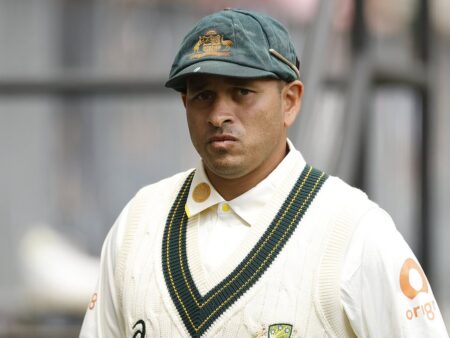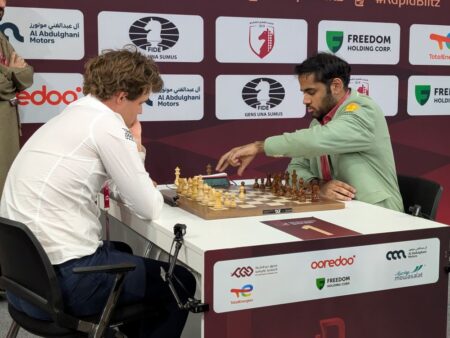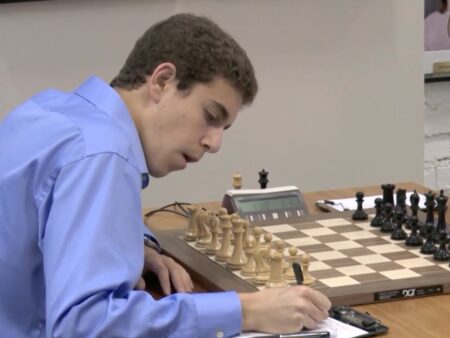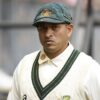Rachin Ravindra seems to have a special connection with major ICC tournaments. He rose to prominence during the 2023 ODI World Cup in India, unexpectedly becoming a top-order batsman, and has consistently performed well since.
In Lahore on Wednesday, March 5th, Ravindra showcased his impressive batting again, scoring his fifth ODI century – all in ICC events, a record for a New Zealander. His contribution helped the Black Caps defeat South Africa by 50 runs and secure a place in the final.
Alongside Ravindra, experienced batsman Kane Williamson also scored a century as New Zealand achieved the highest team total ever in Champions Trophy history. Ravindra expressed his delight at the post-match press conference, discussing his innings and the team’s overall batting performance.
“Contributing to the team always feels great,” he said. “To do it in a convincing semi-final win is extremely satisfying, and I’m very happy.”
He admitted, “I didn’t start as quickly as I wanted. South Africa bowled very effectively, which initially restricted me. However, building partnerships with Will Young and then Kane was crucial. Working together with my teammates was the most helpful thing.”
“I’ll continue to navigate the ups and downs of ODI cricket. In a long innings where you face over 100 balls, there are periods where you have to grind it out. It was valuable to have teammates out there to support me.”
On a favorable batting pitch, New Zealand’s batsmen thrived, with Ravindra and Williamson establishing a strong foundation with a 164-run partnership. Ravindra revealed that they initially weren’t aiming for such a high score during their partnership. They were initially targeting around 320-330 runs, but a powerful finish pushed them to an even higher total.
“We were initially thinking around the 300-run mark,” he explained. “The pitch was slightly slow, and the slower balls were holding up a bit and bouncing more due to how South Africa bowled them.”
“So, we were considering 300 runs, but then Kane suddenly accelerated really well, and we realized we could score more. The explosive finish from Glenn Phillips, Daryl Mitchell, and the other guys ensured we reached 360.”
This extra run cushion proved significant, leading to a total that was clearly challenging, even on a good batting surface. Captain Mitchell Santner acknowledged this, praising the Ravindra-Williamson partnership.
“The pitch was slightly slow in the first innings, but Rachin and Williamson set the stage, and the finishers added the final touches,” Santner said. “That partnership was vital. Williamson maintained momentum through the middle overs. South Africa challenged us, but we capitalized and scored 360. We felt 320 might not be enough.”
New Zealand’s bowlers demonstrated their defensive capabilities, effectively stifling South Africa’s run chase early on. Santner himself led the bowling attack with an impressive spell of 3-43, dismissing key batsmen like Temba Bavuma, Rassie van der Dussen, and Heinrich Klaasen.
The left-arm spinner used his variety of spin techniques to good effect, restricting the batsmen’s scoring opportunities. Santner’s delivery to dismiss van der Dussen was arguably one of the best of the tournament, and removing spin specialist Klaasen was a potentially match-winning moment. His spin partner, Michael Bracewell, also performed well.
“We took wickets in the middle overs and made it difficult for the opposition. Our strategy is to apply pressure and take wickets in the middle phase. Michael Bracewell bowled excellently in the previous match, taking four wickets. I’m pleased to have taken three wickets today. It makes my job easier; we have four all-rounders who can bowl spin and contribute with the bat,” Santner added.
South Africa’s captain, Bavuma, admitted that 362 was likely too high a target for his team to chase. Bavuma himself scored a half-century, as did van der Dussen, and they put on a 105-run partnership for the second wicket to build a platform for the chase. However, Bavuma started slowly and lacked the required pace for the run chase, even though van der Dussen scored at a faster rate.
The South African captain insisted that his team was setting up well for the chase before losing momentum in the middle overs. “We were 125/1 with me and Rassie batting. Unfortunately, we couldn’t establish that foundation for the later batsmen,” Bavuma said.
“My dismissal was a bit soft, and Rassie’s was a better delivery, and we left too much for the end. As I said earlier, when we were 125/1, we needed to be more decisive, not allow the opposition to come back, and be ruthless. We needed to capitalize on the key moments in the game.”
It was a disappointing day for South Africa’s bowlers, as they were heavily scored upon. Apart from Aiden Markram’s part-time spin, none of the Proteas’ bowlers had good figures, and Bavuma felt that their inability to break New Zealand’s partnerships was crucial. The Black Caps ensured they didn’t lose wickets in clusters and maintained a consistent scoring rate throughout their innings.
“We had one or two partnerships today, but we needed me or Rassie to continue and replicate what their batsmen did. They put us under pressure from the start with their off-side hitting and their middle-overs play. Credit to them, especially Rachin and Williamson, and also Mitchell and Phillips,” Bavuma concluded.










